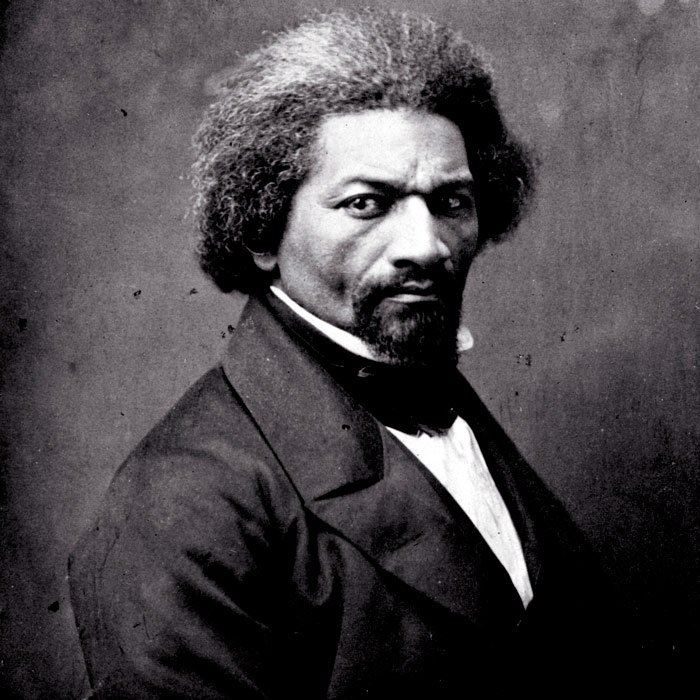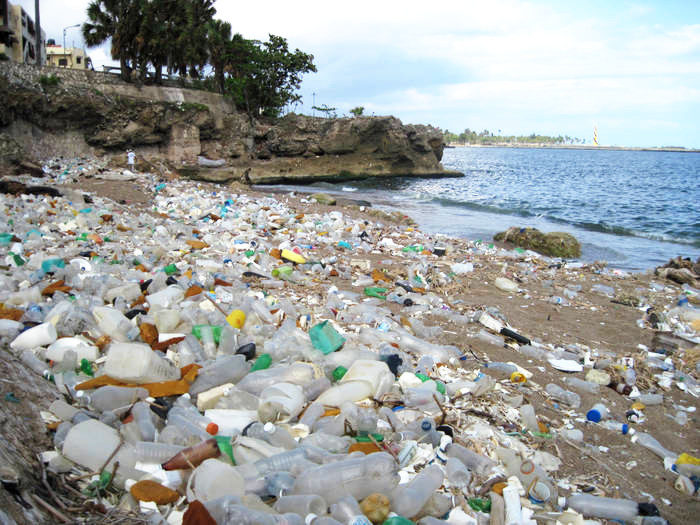Frederick Douglass: “What to the Slave is the Fourth of July?”
I recently reread Frederick Douglass’s What to the Slave is the Fourth of July?, which he delivered on July 5, 1852—a celebrated condemnation of slavery by a man born a slave when it was legal in this country.

You’ll do yourself a favor to read it if you haven’t recently. Here’s the passage where he turns the corner from praising the nation:
I am not included within the pale of this glorious anniversary! Your high independence only reveals the immeasurable distance between us. The blessings in which you, this day, rejoice, are not enjoyed in common. — The rich inheritance of justice, liberty, prosperity and independence, bequeathed by your fathers, is shared by you, not by me. The sunlight that brought life and healing to you, has brought stripes and death to me. This Fourth [of] July is yours, not mine. You may rejoice, I must mourn. To drag a man in fetters into the grand illuminated temple of liberty, and call upon him to join you in joyous anthems, were inhuman mockery and sacrilegious irony. Do you mean, citizens, to mock me, by asking me to speak to-day? If so, there is a parallel to your conduct. And let me warn you that it is dangerous to copy the example of a nation whose crimes, lowering up to heaven, were thrown down by the breath of the Almighty, burying that nation in irrecoverable ruin! I can to-day take up the plaintive lament of a peeled and woe-smitten people!
He continues
Fellow-citizens; above your national, tumultuous joy, I hear the mournful wail of millions! whose chains, heavy and grievous yesterday, are, to-day, rendered more intolerable by the jubilee shouts that reach them. If I do forget, if I do not faithfully remember those bleeding children of sorrow this day, “may my right hand forget her cunning, and may my tongue cleave to the roof of my mouth!†To forget them, to pass lightly over their wrongs, and to chime in with the popular theme, would be treason most scandalous and shocking, and would make me a reproach before God and the world. My subject, then fellow-citizens, is AMERICAN SLAVERY. I shall see, this day, and its popular characteristics, from the slave’s point of view. Standing, there, identified with the American bondman, making his wrongs mine, I do not hesitate to declare, with all my soul, that the character and conduct of this nation never looked blacker to me than on this 4th of July! Whether we turn to the declarations of the past, or to the professions of the present, the conduct of the nation seems equally hideous and revolting. America is false to the past, false to the present, and solemnly binds herself to be false to the future. Standing with God and the crushed and bleeding slave on this occasion, I will, in the name of humanity which is outraged, in the name of liberty which is fettered, in the name of the constitution and the Bible, which are disregarded and trampled upon, dare to call in question and to denounce, with all the emphasis I can command, everything that serves to perpetuate slavery — the great sin and shame of America! “I will not equivocate; I will not excuse;†I will use the severest language I can command; and yet not one word shall escape me that any man, whose judgment is not blinded by prejudice, or who is not at heart a slaveholder, shall not confess to be right and just.
The speech rouses you. I’d describe how so, but you can read it yourself and I suggest you do, especially today or tomorrow, July 4 or 5, 2020. A main point is to look inside yourself and your culture and ask, am I taking for granted my freedom while depriving others of theirs? Am I supporting a system whose comfort and convenience to me hurts others?
What about today?
I also recently watched the documentary The Story of Plastic, made by The Story of Stuff people. Their Executive Director, Michael O’Heaney, appeared on my podcast, and I recommend listening to his episode.

What does plastic have to do with slavery? Obviously, they are very different, but what about Douglass’s theme of some people gaining comfort and convenience from a system that forces others to suffer without legal or practical recourse?
The whole documentary isn’t available free, but they made a promotional teaser. It shows that state of some nations regarding plastic. I’ve seen many images of beaches covered with plastic and other garbage, but the scenes from this movie shocked me. The teaser shows some:
I don’t want to bring you down on Independence Day, but if we want to celebrate freedom, how about looking at how our system impoverishes, endangers, and hurts others? We can work to create more freedom today.
The lives our polluting system is creating for many people—probably hundreds of millions, maybe billions—looks horrifying. I can’t conceive of the scale, and we’re increasing plastic production.
In New York City now, with restaurants serving only outdoors for the pandemic, people seem to be eating two to three meals a day using all disposable containers and utensils. They’re snacking and drinking from disposable stuff between. Newspapers report global emissions have returned to pre-pandemic levels.
People often knee-jerk respond how more polluted other parts of the world are than the US or Europe. As I wrote in my recent post, Who is responsible for pollution?, where we see the pollution isn’t the critical point. Who profits from it is. The answer is clear: Exxon, Dow, McDonald’s, Starbucks, H&M, Zara, Amazon, . . . you know who.
Despite the difference between then and now, Douglass’s question makes me ask: What to someone on the receiving end of all this pollution is our economic system?
How much of our comfort and convenience comes from a system powered by other people’s suffering, even if ten thousand miles away?
How necessary is that plastic cup of coffee? Can you wait an hour until you arrive home or the office where you can use a mug?
Do you have to drive or fly? Can you carpool or find a way not to travel or to travel nearer to home?
Since clothing seems the number two polluter in the world, I recommend The True Cost. You may never buy fast fashion again. I haven’t kept track, but I think I’ve only bought from thrift stores since I saw it, and have bought a lot less clothing since.
Here’s the trailer, and you can watch the full True Cost documentary free online here.
Celebrating Independence Day
What better way to celebrate Independence Day than to think of ways to act personally to reduce others’ misery and dependence.
Can you think of ways to help people hurt by a system the benefits you? That’s a trick question because of course you can. Will you?
If you’d like motivation, I recommend reading Douglass. I think if you watch the suffering in the videos above you’ll agree on evoking his message:
What, to the American slave, is your 4th of July? I answer; a day that reveals to him, more than all other days in the year, the gross injustice and cruelty to which he is the constant victim.
What he says in the following passage about the US before the 13th Amendment applies to many nations today that profit from the system creating the results in the videos above:
What, to the American slave, is your 4th of July? I answer: a day that reveals to him, more than all other days in the year, the gross injustice and cruelty to which he is the constant victim. To him, your celebration is a sham; your boasted liberty, an unholy license; your national greatness, swelling vanity; your sounds of rejoicing are empty and heartless; your denunciations of tyrants, brass fronted impudence; your shouts of liberty and equality, hollow mockery; your prayers and hymns, your sermons and thanksgivings, with all your religious parade, and solemnity, are, to him, mere bombast, fraud, deception, impiety, and hypocrisy — a thin veil to cover up crimes which would disgrace a nation of savages. There is not a nation on the earth guilty of practices, more shocking and bloody, than are the people of these United States, at this very hour.
What I’m talking about
I’m talking about producing less waste. I hope seeing its results clarifies personal responsibility and motivates to act. If I could lower my pollution about 90 percent, improving my life in the process, any American can lower his or hers a comparable amount, improving his or her life in the process. I’ve seen how much junk we buy in stores, how much junk we eat, how much we travel, how much we overheat and over-air-condition, and so on.
Lots of low-hanging fruit. Switching habits is a lot easier than, say, operating a station on the Underground Railroad, which many people did then, so we can do easier things today.
If you want to increase others’ freedom, what habits will you change?
Read my weekly newsletter

On initiative, leadership, the environment, and burpees